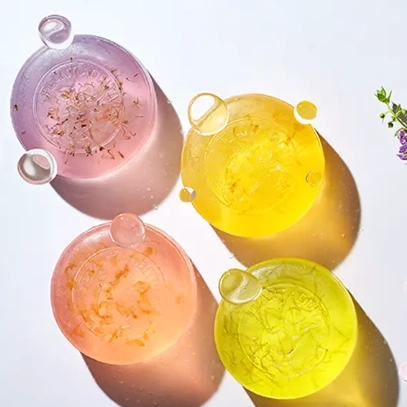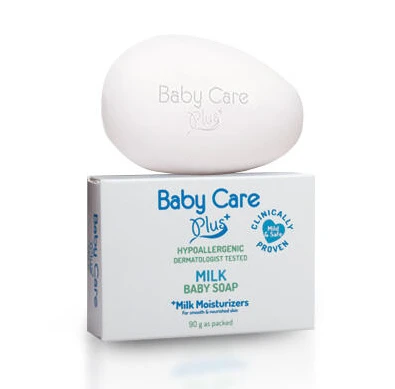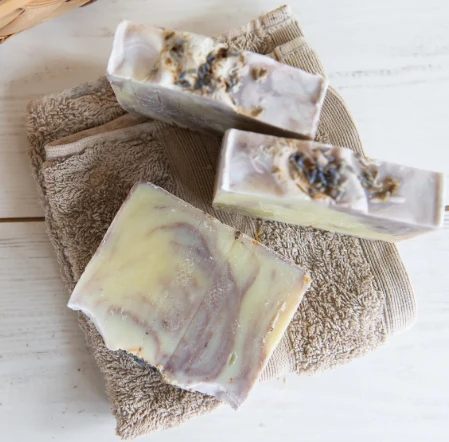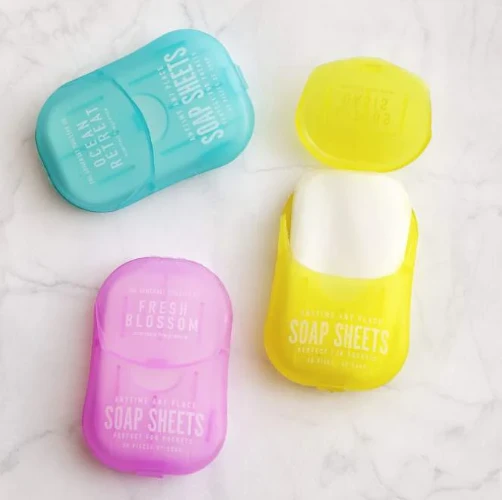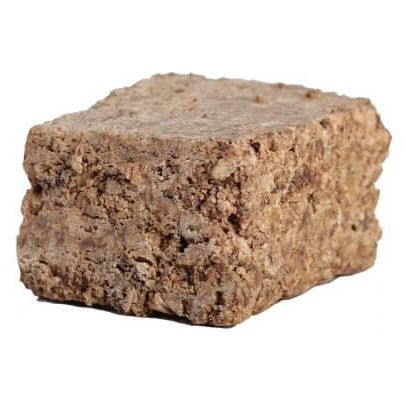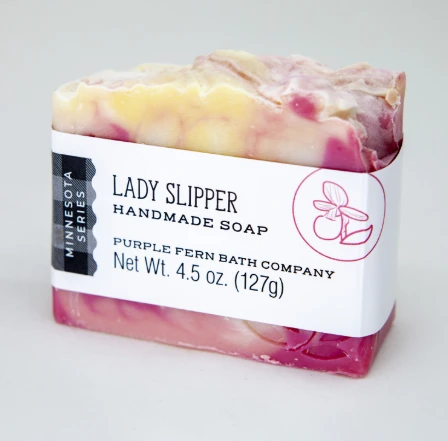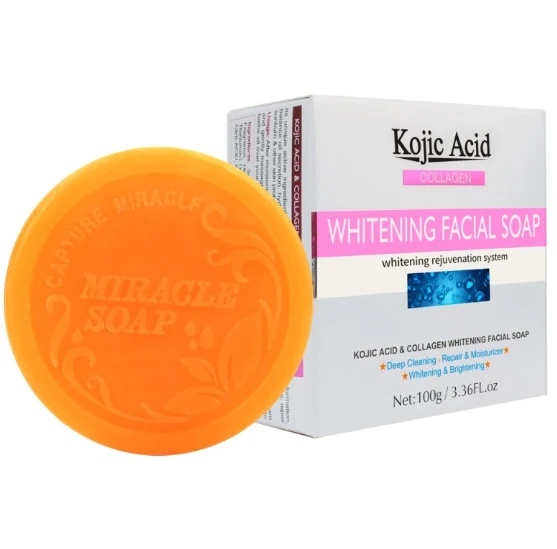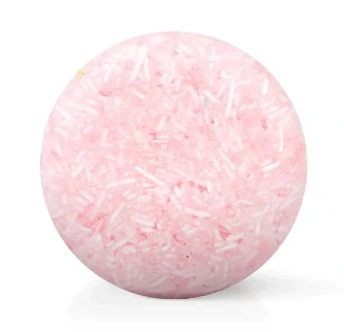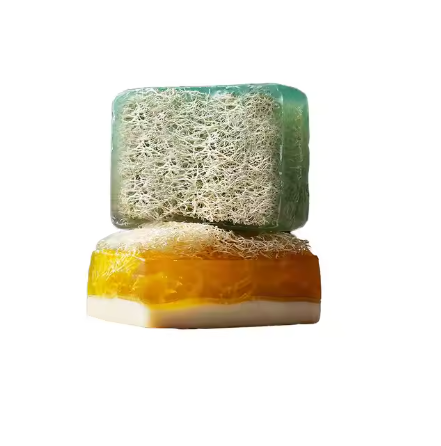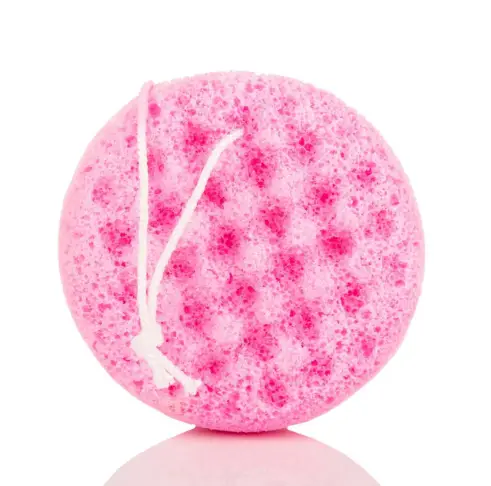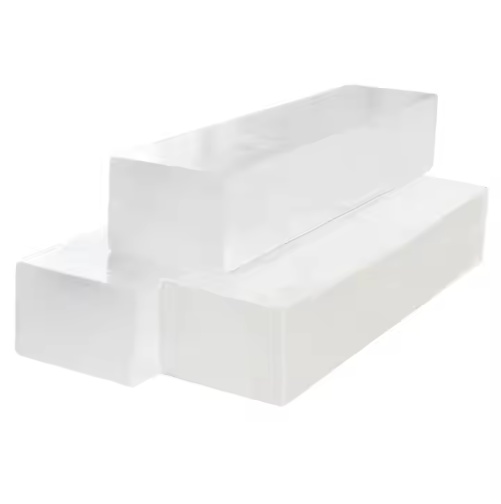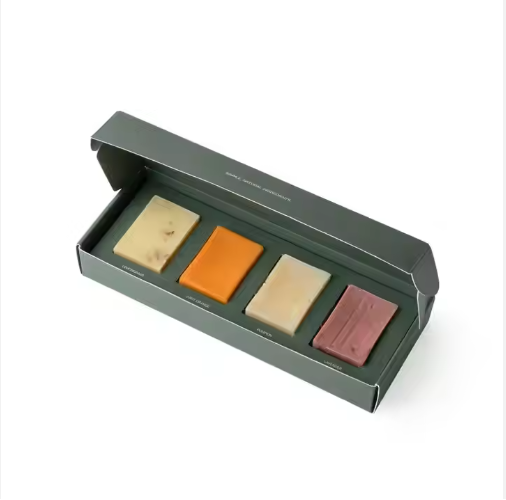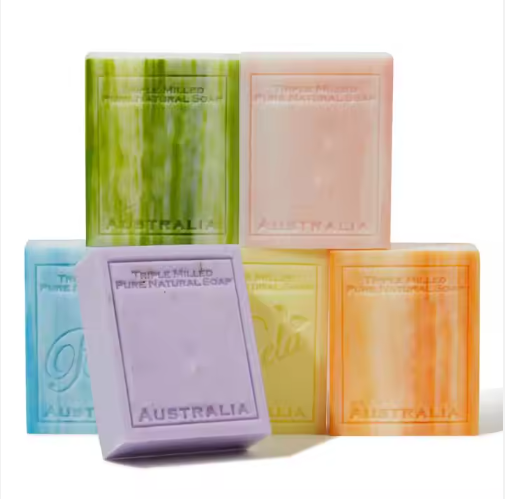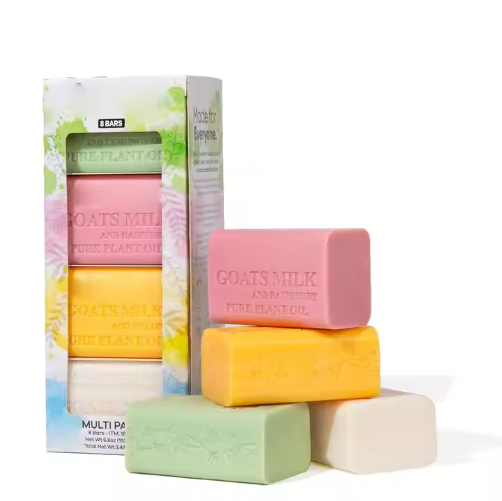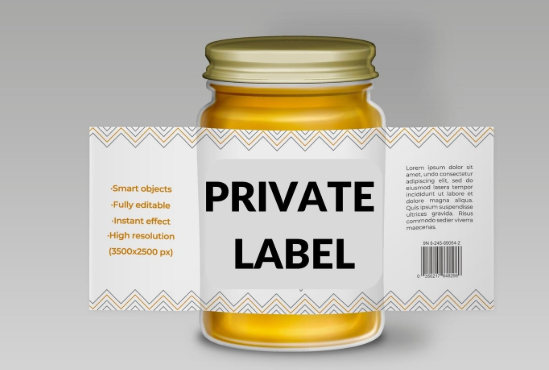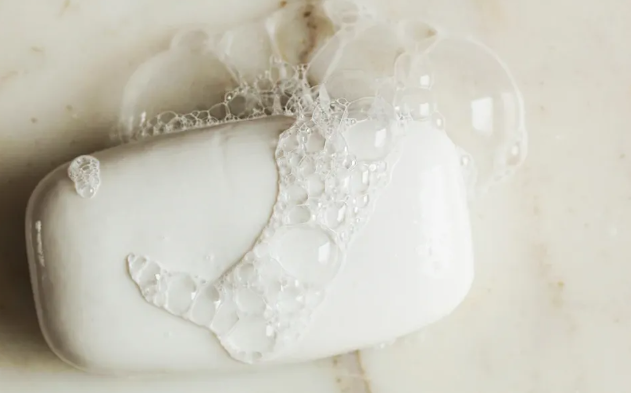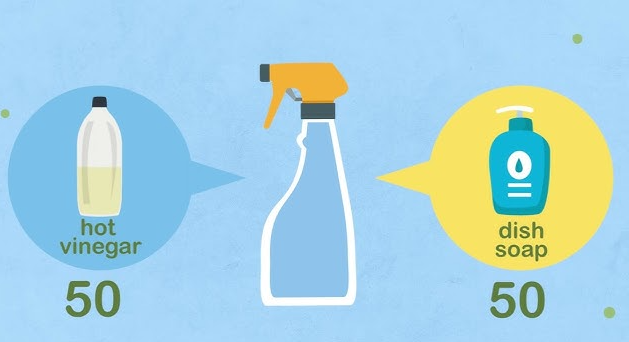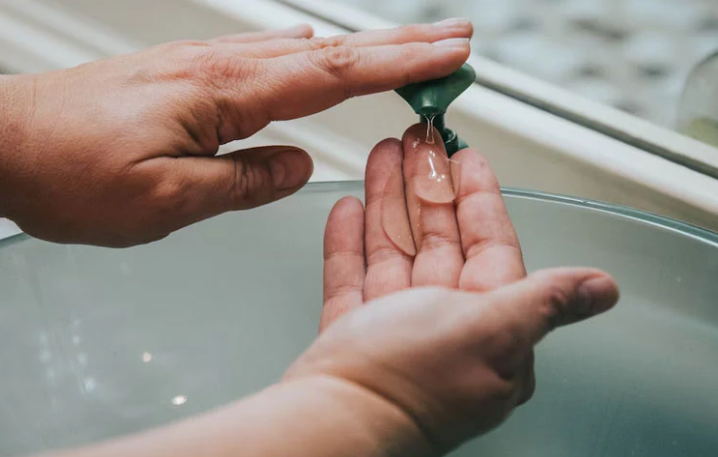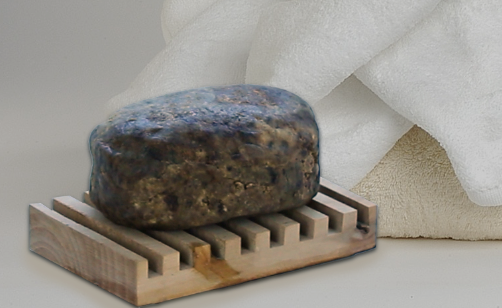What Are The Benefits Of Washing Your Face With Soap?
Who invented soap?
The making of soap dates back at least 5,000 years to the Sumer region (now southern Iraq) in Bronze Age Mesopotamia. Sumerian texts from that era give brief descriptions of ways of making soap from the resin of conifers such as fir trees.
These techniques were later expanded by the Babylonians and Egyptians, who devised new forms of soap made from plant ash, oils and animal fat. The end result had the same basic properties as modern soaps: when combined with water and agitated they created a lather and helped remove dirt.
Soap originally seems to have been used primarily for the treatment of ailments. One Sumerian text dating back to 2200 BC describes a form of soap being used to wash a person who seems to have had some type of skin condition. Exactly what the physicians believed this would do is unclear, but the idea that soap had medical benefits was accepted by many ancient civilisations.
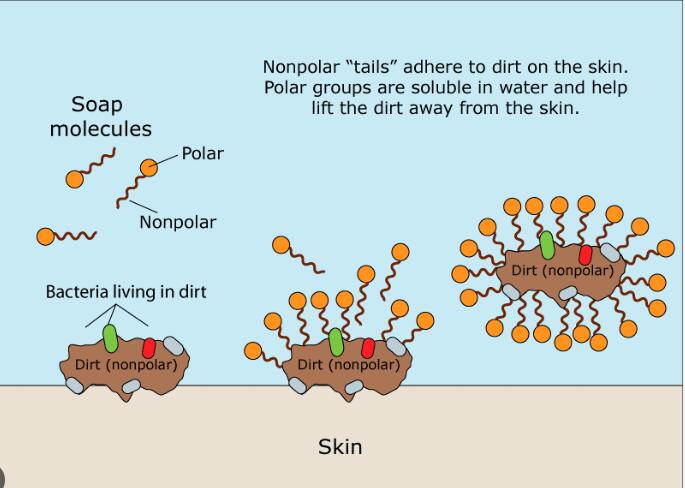
How does soap work?
The structure of soap molecules enables them to remove dirt with ease. They consist of a hydrocarbon chain, with a sodium or potassium atom at the end. The hydrocarbon end is attracted to oil and repels water, whereas the other end attracts water. When you wash your hands, oily dirt particles are surrounded by soap molecules with their water-loving heads facing outwards. This breaks up the dirt and lets it wash away in the water.
Can you wash your face with soap
Soap is designed to lather-up and create a foam texture – this should be your first warning sign that you should not be washing your face with soap. No product should “foam” on your face, especially if you have sensitive skin.
In order for a product to foam, you need a surfactant. This can push your skin to an alkaline pH. Bacteria prefers alkaline which is why it is so shocking that so many oily and acne-treating skincare products are foaming face washes.
Foam products are particularly common in male skincare brands, without the disclaimer that you are putting your skin at risk.
The foaming agents strip your skin and leave it dry and irritated, as soap is designed to remove bacteria and dirt – which is why hand lotion sales have soared during the COVID-19 pandemic.
Are there any benefits to washing your face with bar soap?
Some bar soaps can be gentler on sensitive skin. However, before you pick up any bar soap for your face, it’s important to make sure it’s been formulated for use on your face.
There are many skincare brands that offer bar soaps made just for your face. Look for bar soaps that are unscented, hypoallergenic, and include high levels of moisturizing ingredients, such as:
- ceramides
- glycerin
- hyaluronic acid
- niacinamide
Avoid ingredients like:
- dyes
- parabens
- fragrance
- lanolin
- formaldehyde
How to Pick the Best Soap for Your Face
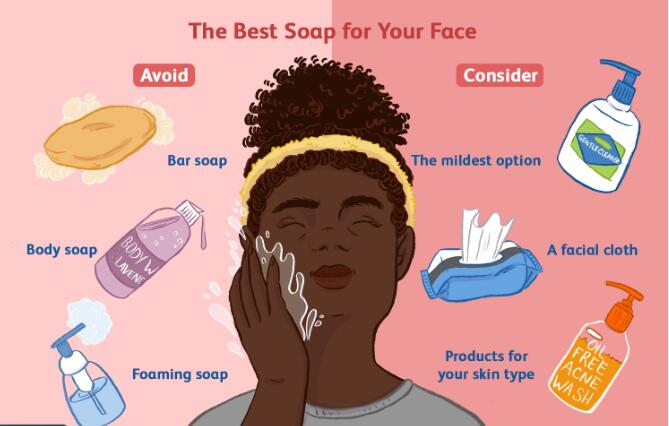
These are some guidelines to keep in mind as you look through the aisles in a drugstore for the best soap for your face.
- Use something that’s made for the face. Facial Soaps are designed specifically for sensitive facial skin. Even the mildest body Soap or liquid cleanser for the body may be too hard on the face and may contain fragrances, dyes, or scrubbing materials not recommended for use on the face.2
- Start with something mild: Use the mildest cleanser that gets rid of oil and residue.2
- Pick something non-foaming: Foaming cleansers look and feel cool, but they contain ingredients that might irritate your skin, especially if you have sensitive or dry skin.
- Consider a facial cloth: A facial cleansing cloth has soap already embedded in the cloth. The facial cloth also exfoliates, helping you slough off dead skin cells that may clog your pores and cause acne. Note, however, that using anything other than your fingertips can irritate your skin, so if you use a cloth, be gentle and do not scrub.2
- Consider your skin type: Different types of skin—dry skin, oily, acne-prone skin, and sensitive skin—have different needs. If a regular cleanser isn’t working, try something matched to your skin type. If that doesn’t work, make an appointment with a dermatologist (a doctor who specializes in treating the skin) for more advice.
How to wash our face properly
Taking the time to wash your face properly is an important step in your daily hygiene and self-care routine. Choose the right cleanser for your face and make sure to wash your face in the morning, at night, and after heavy sweating.

Follow the steps below for clean and healthy skin:
- Use lukewarm water to wet your face with your hands.
- Use your hands to apply the cleanser to your damp face.
- Use gentle circular motions to wash your face.
- Wash the cleanser off your face using lukewarm water.
- Dry your face with a soft towel.
- Apply moisturizer.
Remember to be gentle when you cleanse your face. It’s important not to scrub your face or use washcloths or other abrasive tools. Harsh scrubbing can irritate your face and make any skin problems worse.


